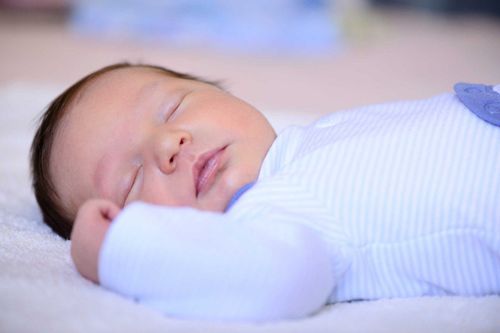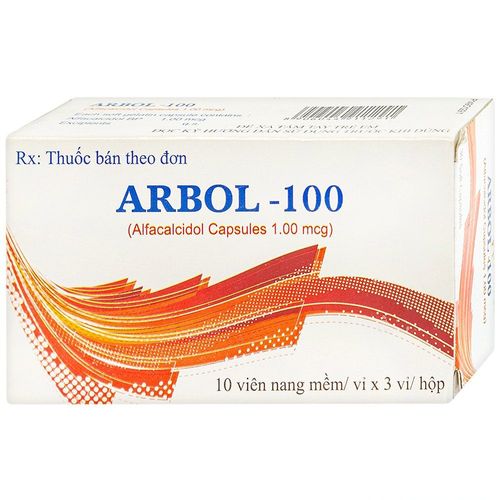This is an automatically translated article.
Parents are often quite worried when they see their children roll over while sleeping and worry that it will affect the child's development. So what is the cause of the baby rolling over when sleeping?
1. Why do babies often roll over when they sleep?
Children with rickets often do not sleep well, children often toss and turn, startle, hair loss, flattened head, slow to roll, crawl, walk, slow teething, soft fontanel and slow healing... For this case, parents need to give their children calcium, vitamin D and zinc supplements. Besides, the baby often turns over when sleeping, maybe because the child sleeps a lot during the day, so the night does not want to sleep. In addition, children sleeping or turning over can also be due to hunger or because they eat too full, their stomach is full, their teething pain, wet diapers make them itchy and uncomfortable,...
However, there are also some children likes to sleep in the prone position. Therefore, parents should not be too worried, because the child can turn over without fear of suffocation. If your baby often flips over while sleeping but still sleeps well, that's okay.
Watch now: What's wrong with sleeping or rolling around in the middle of the night?
2. The danger of the baby rolling over when sleeping
The highest rate of sudden sleep death in children is between the ages of 1 month and 1 year. In which, children from 1 to 8 months of age have the highest risk, especially at the age of 2 to 4 months. Statistics show that boys are more likely to die suddenly than girls. Because of this, the prone position when sleeping is often not recommended for babies for the following reasons:
Increased risk of sudden infant death syndrome (SIDS). Increased pressure on the child's jaw and narrowing of the airways leads to reduced air flow. When the baby is lying on the stomach, the face will be pressed against the pillow, making the air circulation worse, and the amount of air the baby exhales and inhales is uneven, causing more CO2. Babies lying on their stomachs are more likely to die suddenly when the pillow is too soft. Children easily breathe in microorganisms present on mattresses and pillows. Young children have a fairly large head size and insufficient neck strength, so when lying on their stomach, it will be difficult to turn over. Lying on the stomach puts the baby's belly in contact with the bed mattress and makes the body temperature rise, difficult to dissipate heat, accumulates sweat, causing eczema for the baby. If the child lies on the stomach for a long time, it will cause the facial bones to be unsightly. However, medical experts also suggest that sleeping on their stomachs is not always dangerous and makes parents panic. Around the age of 6 months, many babies have mastered the ability to turn from their back to their stomach, so it will be difficult for you to "manage" your baby's messy sleeping position. But experts warn that, although tummy time is your baby's favorite position, you should still put your baby on his or her back to sleep at least until the age of 1 year.
Watch now: Why do children sleep or startle and how to overcome?

Trẻ hay lật khi ngủ có thể do ban ngày trẻ ngủ nhiều nên đêm không muốn ngủ
3. Tips for handling sleeping or turning babies
Some tips to handle baby sleeping or startling are as follows:
Do not let your child sleep in a sunken bed: The first priority is to choose a hard mattress for the baby to lie on, not a soft mattress or a water mattress. Besides, do not use soft pillows, do not put stuffed pillows and stuffed animals in the child's sleeping area because they can cover or cover the child's head while sleeping. Parents should choose a small and long pillow with moderate firmness, place the pillow deep towards the nape of the neck, close to the child's neck and shoulders. Avoid covering and covering the child's head: Parents should only cover the child with blankets and pillows across the child's chest and put their hands outside the blanket to prevent the blanket from moving when the child sleeps or may cover the child's head. Do not let children get hot while sleeping: Children should be dressed in light, airy clothes when sleeping because children often have higher temperatures than adults. Children should not wear tight pants, shirts that are too tight and often check if the child is hot or not. Create a comfortable environment for children to sleep: Parents need to create a cool, comfortable environment with a temperature of about 20 degrees so that children can have the best sleep. For children to sleep in the same room: To facilitate breastfeeding at night and monitor the child's condition, parents should sleep in the same room and let the baby lie in the crib. In addition, parents can refer to how to train children to sleep on their backs by placing them on their backs at the beginning of sleep. If your baby is more than 1 year old, this is a safe time to use blankets for babies. Parents need to pay attention, cover the baby with buttons to fix the edges of the blanket under the mattress after placing the child in the supine position. When fixing the blanket, parents need to be careful not to let the baby suffocate, but not too loose, making it easy for the baby to turn over. Keep your baby's feet as close to the bottom of the blanket as possible.
Children often roll over when sleeping due to many different reasons, if the child still sleeps well and is under the control of parents, there is no need to worry. However, if a child under 1 year old often turns over while sleeping, it can also cause certain harm. Therefore, parents should observe and use some of the above methods to help children have a good, deep sleep, ensuring maximum safety.
For more nutritional knowledge and child care for each age, parents should regularly visit the website vimec.com and make an appointment with the leading doctors, pediatric and nutrition experts of the National General Hospital. Vinmec when needing advice on children's health.
Please dial HOTLINE for more information or register for an appointment HERE. Download MyVinmec app to make appointments faster and to manage your bookings easily.













